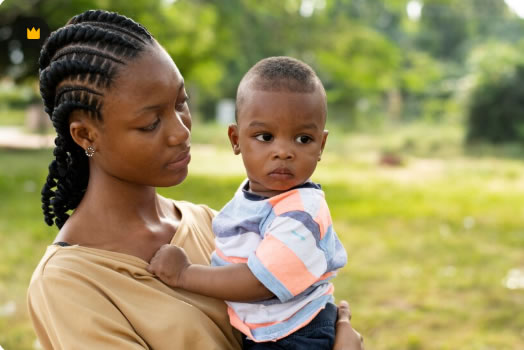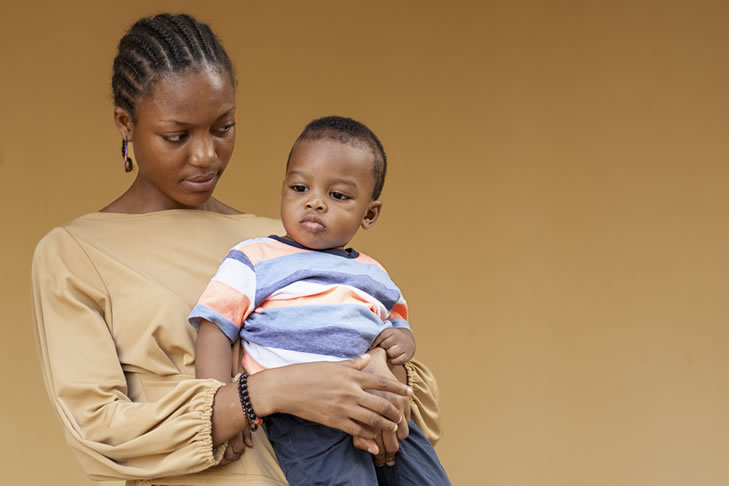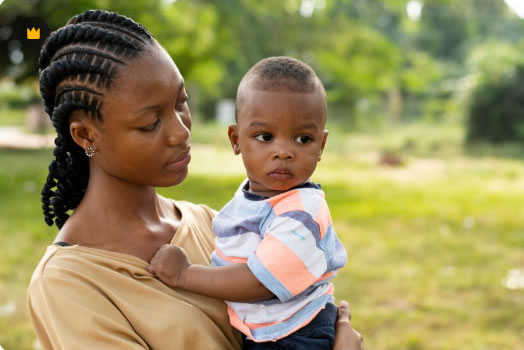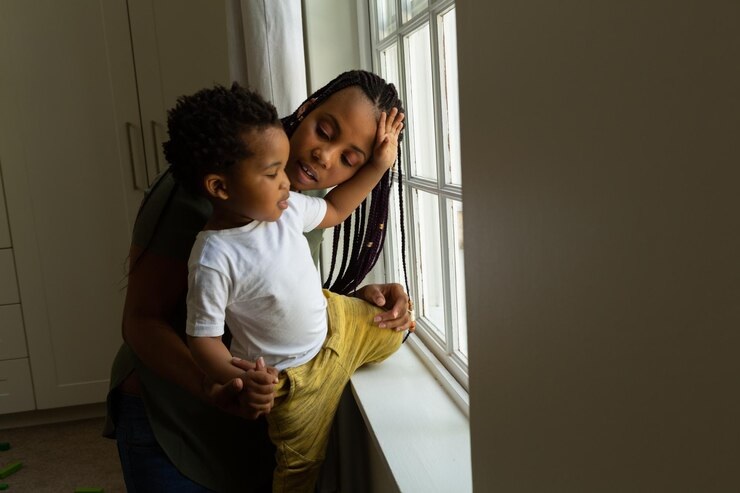Echoes Of A Mother’s Heart – Part 5: The Light Beyond the Storm
Echoes of a Mother’s Heart – Part 5 The Light Beyond the Storm RecapZainab, a loving mother in Ibadan, Nigeria, had endured years of confusion, social judgment, and silence regarding her son Fola’s behavior. Diagnosed late with autism, Fola’s condition strained their finances, their family, and Zainab’s mental health. Through moments of hope and near collapse, her story became a mirror for many Nigerian mothers. But just when it seemed darkest, a flicker of light began to rise. The Healing BeginsZainab sat in the modest living room again, but this time, everything felt different. The TV was off. Her phone, silent. She sat on the mat beside Fola, who was lining up his crayons — red, blue, green, yellow. There was no screaming, no pacing. For the first time in weeks, he paused, looked up at her, and whispered: “Mummy?” Zainab blinked. She had waited three years to hear that word — from him. She burst into tears. Fola walked to her and placed a crayon in her palm. The red one. It wasn’t a sentence. But it was everything. A Turning Point: Meeting Dr. JoAt the recommendation of a kind neighbor, Zainab finally visited Hope4AutismFamilies.com. It led her to Dr. Josephine Tope-Ojo, a global consultant and Board Certified Behavior Analyst (BCBA-D). For the first time, Zainab wasn’t dismissed or pitied. She was understood. “Zainab, you are not broken,” Dr. Jo said via a Zoom call. “Your child is not cursed. He is not stubborn. He is not possessed. He is autistic — and beautifully so.” Zainab sobbed. Through online coaching, guidance, behavior therapy plans, and parental support, Dr. Jo began to walk Zainab through what the Nigerian system had denied her for years: understanding, tools, and hope. Bringing the Family TogetherAt first, Zainab’s husband, Rafiu, had dismissed everything as “Western thinking.” But Dr. Jo invited him to a session. She spoke not only as a scholar but as a mother. “Your son may never be typical. But he can be functional. He can be happy. And you will be proud of him.” Rafiu listened. For the first time, he held Fola and didn’t pull away when Fola didn’t hug him back. Instead, he whispered, “Daddy loves you.” Fola didn’t speak. But he leaned on his father’s chest. That was enough. Community and CompassionDr. Jo helped Zainab set up a support circle of four mothers in her area — all with autistic children. They called it “Our Echoes.” Every Friday, they met in someone’s home, prayed together, shared meals, and supported one another. They laughed. They cried. They learned. Zainab even began teaching other parents basic behavior management skills. Her voice became stronger. Her back, straighter. Her eyes, lighter. She was becoming not just a mother, but an advocate. The School that ListenedA local school, previously unwilling to enroll Fola, finally agreed after Dr. Jo helped draft an Individualized Education Plan (IEP). Zainab trained the teacher in understanding Fola’s visual cues and preferences. By the end of the first term, Fola could sit through morning assembly and participate in class using picture cards. One teacher whispered to Zainab, “I never knew he could smile like that.” A New ZainabGone was the silent woman who cried behind bathroom doors. Zainab had become a lighthouse for others. “Autism is not a death sentence,” she often said at community gatherings. “But ignorance is.” She spoke in churches. Mosques. On radio. On WhatsApp forums. She shared the name Dr. Josephine Tope-Ojo like a lifeline. Her story rippled across communities. More families reached out. More children received help. The silence cracked — and in its place, voices began to rise. The Message of HopeTo every parent walking through this painful and confusing path, this story is yours too. Yes, there is stigma.Yes, there is silence.Yes, there are days when it feels like the world doesn’t see your child — or you. But there is hope. There is compassion, there is professional help, and above all — you are not alone. Final Words: A Letter from ZainabTo every mother who cries in secret,To every father afraid to accept,To every child struggling in silence, Know this: there is a place where your pain is understood. Where your child is not “weird,” but wired differently. Where you don’t have to pretend anymore. I found that place.It gave me the courage to find myself again. You will too. – Zainab Adebayo 📩 For Trainings: As a non-profit organization, we provide both virtual and in-person behavioral training for parents and caregivers of children diagnosed with autism. For families who may need more personalized support, we also offer individualized Applied Behavior Analysis (ABA) services. These services focus on promoting socially significant behavior change—supporting skill acquisition, behavior modification, and reduction programs designed to enhance the development, abilities, and independence of children on the autism spectrum. Email us at:📬 info@hope4autismfamilies.com You are not alone. 💙 Disclaimer: The characters in this story are fictional; however, the events and situations depicted are true to life.






